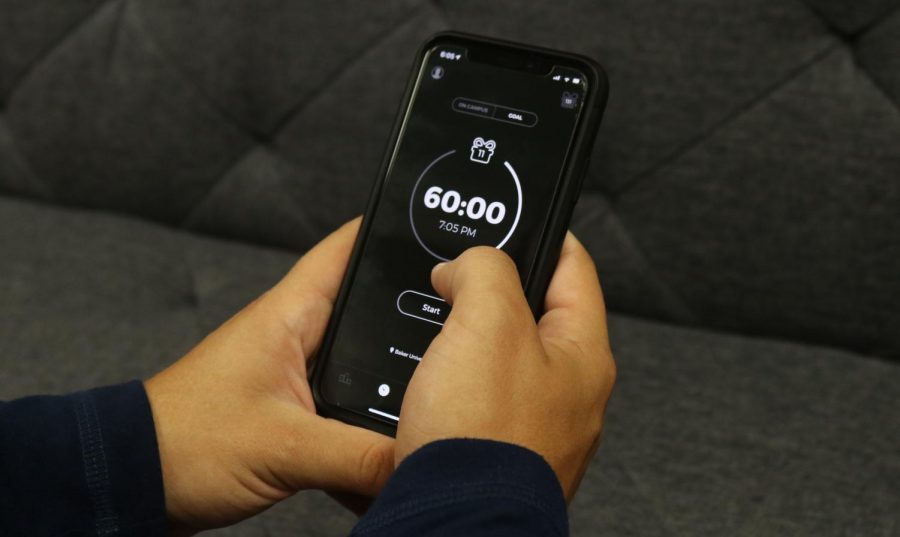Pay Attention; Pay Less
Pocket Points app rewards students for staying off their phones
December 6, 2018
In 2014, Mitch Gardner and Rob Richardson, two fraternity brothers at California State University, Chico, launched Pocket Points, an app designed to keep students off their phones during lectures and classes. Recently, the app has drawn a large number of users of all ages.
The initial idea of the app was to allow professors to reward their students with extra credit for not using their phones during classes. After conducting multiple focus groups, Gardner and Richardson received negative feedback from the professors. They found that the additional responsibility of monitoring student phone use had become a hassle. While professors did want their students engaged and involved, they did not enjoy the extra work. After researching student incentives and reward systems, Gardner and Richardson found that most students were heavily motivated by food and clothing related discounts. This discovery led them to alter their app to its current model; rewarding students with discounted items at local businesses on or near each campus.
Shortly after the IOS version launched at California State University, Chico in September of 2014, Pocket Points spread to 11 additional schools. The company then secured seed funding and eventually became available on both IOS and Android. Pocket Points is now available at over 200 schools across the United States and Canada.
The app uses geo-fence technology that creates a virtual boundary on a mobile device to sense whether students are on or off campus and then enables the user to earn points by keeping their phone off. When off campus, users can set goals for themselves and earn 0.5 points per minute. However, the points double when on campus. Users are also able to collect points while driving to discourage distracted driving. Points are then used at local and online businesses for a wide variety of student discounts, coupons, or gifts.
Currently, around 100 Millard West students are earning Pocket Points, and that number continues to grow.
Sophomore Julia Dugger uses the app during all her classes to help focus.
“Right when I walk into class I turn off my phone and start earning points,” Dugger said. “I’ve noticed that the rewards and discounts the app offers pushes me to focus on learning and studying. I think it’s a really helpful thing to have.”
Students have not only used the app to help them focus in class, but also as a friend to friend, point-based competition. Jack Micek, a student at The University of Nebraska-Lincoln, says he first heard about Pocket Points from his fraternity brothers.
“They were actually, as men will do, being very competitive about who had the most points,” Micek said in an interview with USA Today. “Naturally, my interest was sparked, and I was like, ‘OK, I bet I can get more points than you guys can.’”
While the rewards that come with Pocket Points are a nice feature, the app does come with a few problems. Students who live on or near campus are able to use the double point feature while they aren’t in class. In an interview with USA Today, Gardner and Richardson said they are working to control the accessibility of the app so that students can’t earn points outside of classrooms.
“If they’re trying to cheat the app by going on campus and watching Netflix on their computer, that’s not what it’s meant for but there’s no way to stop that,” Gardner said. “Our goal is to help them study or focus, so if they do that, we’ve succeeded.”
The app does more than just offer discounts to students. Pocket Points encourages students to be more present, not only while in class, but while driving and within everyday conversations. As technology becomes more prevalent in our daily lives, Pocket Points serves as a reminder to take your eyes off the screen and to focus more energy on the present.







